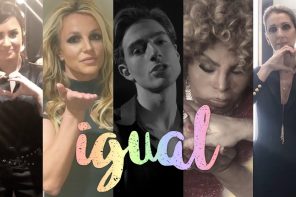We used to buy my grandfather the coolest sneakers. Remember Reebok Pumps? He might have been the first man in Islamabad to own them. Mr. Abdul-Bari would stroll into Lal Masjid, Islamabad’s reddish-hued mosque (hence the name), wearing a long cotton tunic and baggy pants, the stereotypical shalwar kamiz. But his feet would represent the best of American youth culture—or at least the consumer consequences of his daughter’s migration West, such that her children returned every year with some form of Nike or Adidas or whatever.
There at the mosque, early in the morning for the fajr namaz, all his elderly friends would gently tease him for his grandchildren’s brightly-colored gift, looking like bubbly presents from an alien world: also, good walking sneakers. (If my grandfather wanted to play a game of pick-up basketball, he was down for that, too.) This way, we reasoned, we’d do our part to make his trips to the mosque more comfortable, and partake of whatever blessings he might earn in so doing. If you help someone do good, it’s as if you’ve done good, too. God rest his soul, and the mosque’s too.
Lal Masjid was the scene of a pitched battle between the Pakistani army and extremist forces not too many years ago, though it was well after my grandfather had passed on. When I last visited the mosque several yeas ago, I couldn’t go inside. It was off-limits for security reasons. It was a sobering, depressing experience. I’d associated the mosque with the nostalgia of Christmas vacation visits to where my parents came from. Pakistan used to be that, but has lately become a far more contentious and difficult place to come to terms with.
Though I was born and raised in the United States, it’s hard not to be mocked by life’s simple contingencies. Had my parents not left, would I have had the opportunities I do now? And what about those who are in Pakistan, who must face the ongoing tragedy of a country that never figured itself out, a country that still does not know how to answer this devastating question: Is a Pakistani an Indian? The circumstances of Pakistan’s birth were far more uncomfortable than most. It was traumatic, violent, and remains a repressed memory in many respects—what else would you do with hundreds of thousands dead in mass slaughter, as neighbors turned on one another? This is how borders are made real: in blood.
I look at Pakistan and I sigh. I wish so much better for it, and its people. But I don’t see where that better will come from. Unless maybe that was Tahrir.
I was warmly envious of my Egyptian friends in part for this very reason, as during their uprising it seemed that they had figured out how to move forward. I cheered with them as Mubarak’s regime teetered and the pompous strongman fell; I prayed the uprisings would bring a new day to the region. For the problems of Arab and Muslim-majority countries are eerily similar, and seem to be waiting for similar (and similarly unknown) solutions. Algeria and Pakistan struggle with extremism amplified by the roles of a murky military. Iraq and Syria tremble over sect, ethnicity, and identity. Tunisia and Turkey test the boundaries of secularism and faith. Morocco and Jordan contend with traditional monarchy and modern statehood.
But as I watch the latest news from Egypt, that the country’s parliament has been dissolved by a Mubarak-era court, I wonder: Has the revolution ended before it began? (Revolutions are, by definition, simply movements around the wheel: The end is the beginning is the end.) The Islamists made a big mistake in contesting so many seats in this first parliament, for now they have now (among other things) demonstrated to the populace an inability to effectively challenge the military—and anyway, they cannot bring together Egypt’s many factions sufficiently to force the military into a responsible process of democratization. Who else can summon the numbers adequate to force the military’s hand?
And the Islamists, too, might read these lessons in their own way: They can participate in politics, but not really. Or only under strict limits, which others will decide for them. That didn’t work in Algeria, and tens of thousands died in a war that the deep state exploited for its purposes. It only worked in Turkey until the former Islamists overcame the deep state, and turned it to their side. But Turkey seems right now an exception: Across the region, there is a sense of ominous paralysis. It’s not that the center cannot hold. It’s that there is no center.
My grandfather was a well-educated man, versed in the traditions of a Muslim episteme that seems impossibly far. He and his forefathers studied Arabic and Persian in addition to Urdu, learned and wrote and shared poetry, and cultivated an urbane cosmopolitanism that required no travel to the West, no cultural alienation, no hotheaded religiosity, and no angry insistence on imposing belief upon others. He was quite happy to walk in Michael Jordan’s newest sneakers to the local mosque, slip them off for prayer, and shrugged when they disappeared, as inevitably they would. That kind of piety seems inconceivable, and that kind of quiet certainty appears improbable in an era when politics does not work, but has to and should, and the disconnect between the two has left the entire region seething and desperate.
What happens next?


